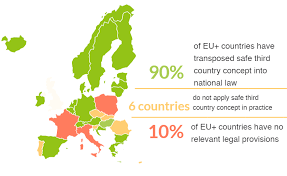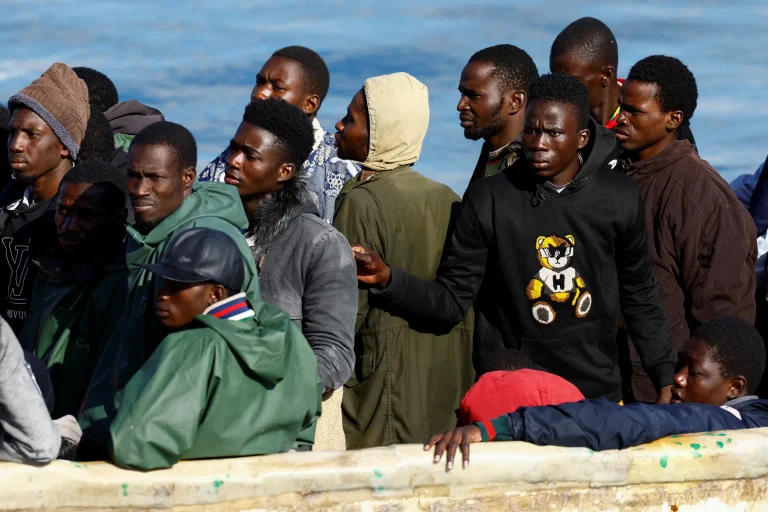The recent 2024 reform proposal by the European Commission to expand the concept of “Safe Third Country” (STC) in asylum procedures marks a worrying step in Europe’s migration policy. This idea, which initially took shape with the 2016 Turkey-EU agreement and was reinforced through the Dublin Regulation, is now extending further — with the EU considering sending asylum seekers to additional “third countries” whose safety and capacity to protect refugees are highly questionable.

Originally, the STC concept allowed EU states to refuse examining asylum claims if the applicant had passed through or had ties with a third country deemed “safe.” However, the latest proposal removes the necessity of any meaningful link between the asylum seeker and the third country. Instead, the EU will allow deportations based on mere transit or even agreements with third countries, regardless of whether these countries provide genuine protection.
What is particularly alarming is the inclusion of countries like India, Colombia, Morocco, Tunisia, Egypt, Bangladesh, and Kosovo in the proposed list of safe third countries. Many of these states neither fully comply with the 1951 Refugee Convention nor have robust asylum systems. The reality is that a large majority of refugees worldwide — over 70% — reside in developing countries, often with far fewer resources than Europe. Despite this, the EU insists on outsourcing its asylum responsibilities to these countries, hoping to deter arrivals on European soil.
This strategy is not new. The 2016 Turkey deal aimed to reduce the flow of refugees to Europe by sending them back to Turkey. Similarly, the Dublin Regulation attempts to shift responsibility to the first EU country an asylum seeker enters. Now, the scope is expanding beyond Europe’s borders, threatening to leave vulnerable people trapped in countries that might not offer adequate protection or legal safeguards.

Rights groups have strongly criticized the move. Silvia Carta, Advocacy Officer at PICUM, stated, “Today’s proposal to expand the ‘safe third country’ concept is a blow against people seeking protection and livelihood in Europe. We can expect families being separated and people being deported without appropriate judicial review to places they don’t even know. This is no way of living up to Europe’s values of human dignity and human rights.”
Moreover, the proposed reform weakens appeal rights, meaning rejected asylum seekers might be deported immediately, without waiting for a fair legal review. This contradicts rulings by European courts emphasizing that appeals should automatically suspend deportations.
In effect, the EU is making it easier to refuse asylum requests by declaring countries as “safe” without rigorous evaluation of their conditions. Refugees are denied access to a full and fair asylum procedure, often sent to places where their safety is far from guaranteed. The famous phrase “out of sight, out of mind” perfectly describes this approach — push the problem beyond Europe’s borders and ignore the human consequences.
Experience from countries like Australia and the UK, which have used offshore processing centers and third-country agreements, shows the devastating impact of such policies. Refugees face prolonged detention, separation from family, and legal limbo in remote locations, with limited access to protection and rights.
In conclusion, the EU’s expansion of the “safe third country” concept is a dangerous shift that undermines refugee protection and human rights. It reflects an unwillingness to share responsibility fairly and a preference for externalizing asylum processes to countries that may not be equipped to handle them. As the majority of refugees live in poorer nations, Europe should lead by example and uphold its commitments — rather than shirking them through questionable third-country deals.




